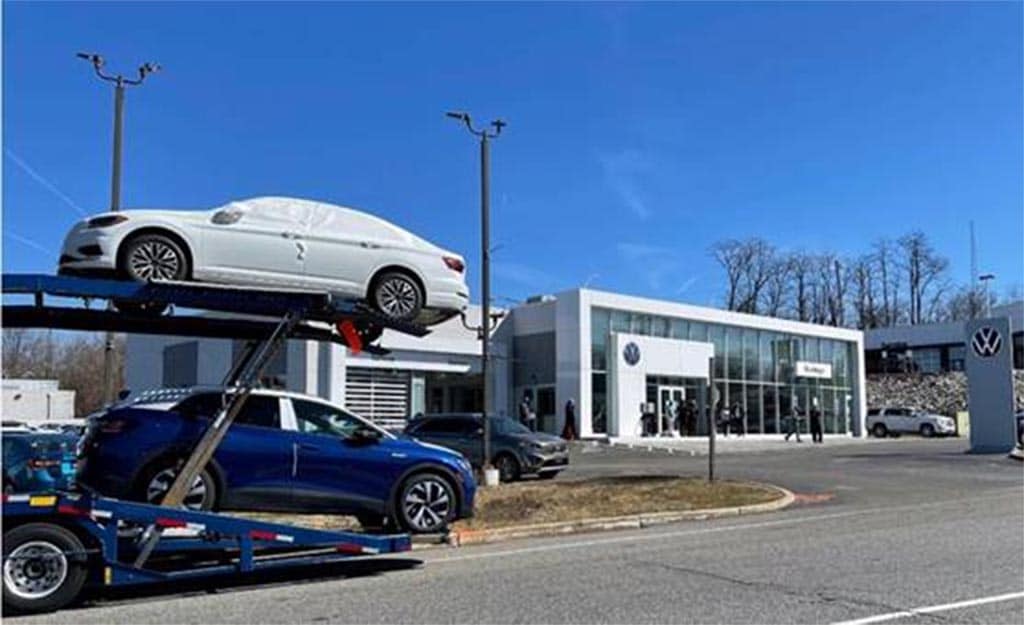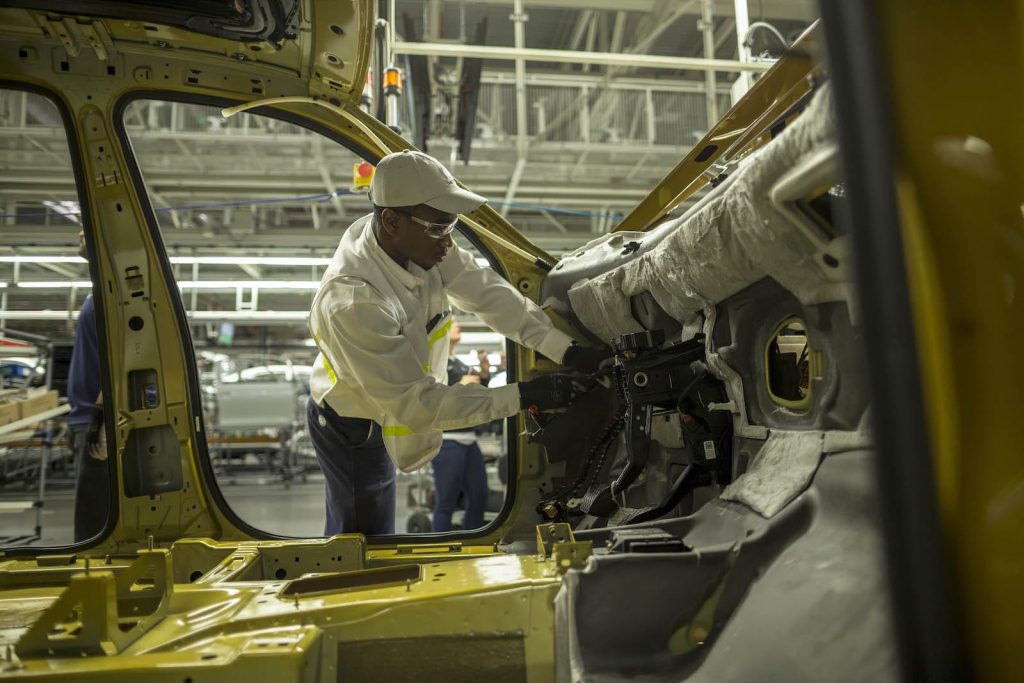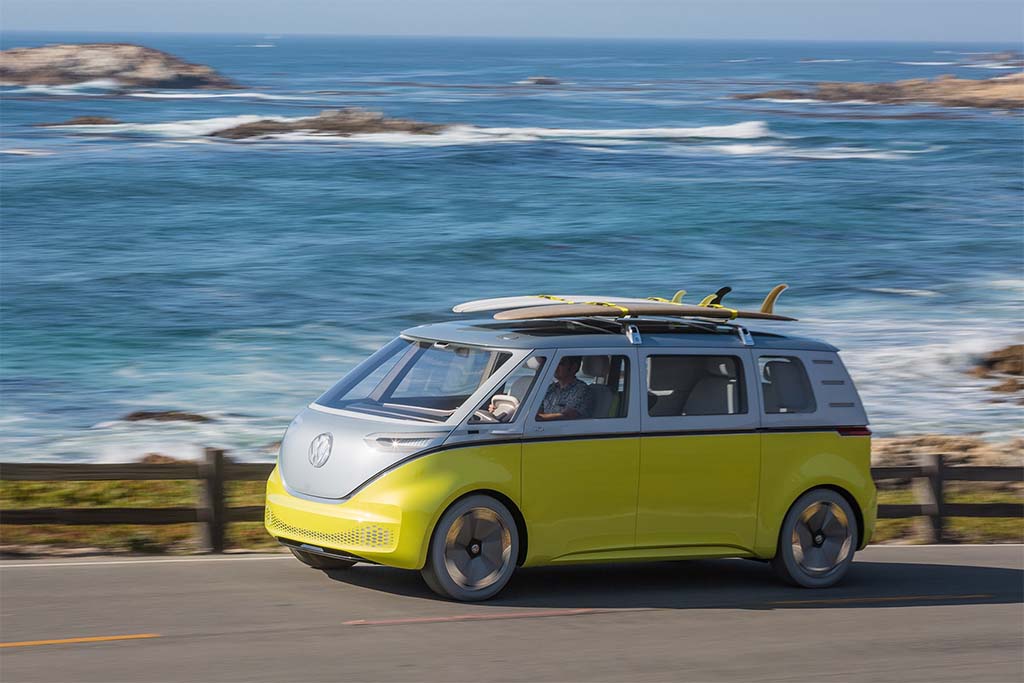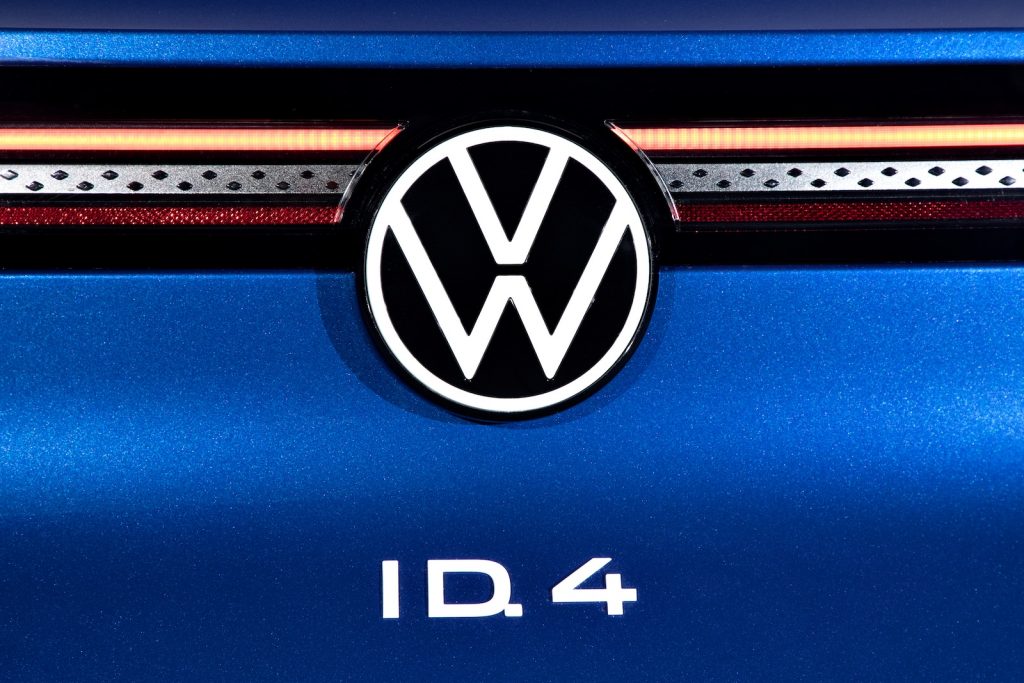Volkswagen will “realign … in a massive way” its EV plans for the U.S., a senior company official said, responding to President Joe Biden’s push to boost electric-vehicle sales.

The announcement echoes moves by other manufacturers, including Polestar, the Volvo battery-car spinoff, that said it will produce its next model at a plant in South Carolina, rather than importing it from China. General Motors, Ford and other have upped their own plans since the president laid out an infrastructure bill calling for $174 billion to accelerate the U.S. battery-car market.
Until now, VW plans entailed selling just three battery-electric vehicles in the U.S., including the recently launched ID.4 and another model yet to be identified. Both were to have begun being assembled in Chattanooga, Tennessee following the expansion of that plant. Now, it appears, there will be more BEVs in the pipeline for U.S. showrooms.
The automaker is working to shift its BEV strategy and will “realign … this in a massive way,” the Volkswagen brand’s product development chief Thomas Ulbrich told reporters in Munich. The new strategy was first reported by the Bloomberg news service.

Expansive EV plans
The parent Volkswagen Group has revealed the most expansive BEV program in the industry so far, announcing it will spend $86 billion by the end of the decade to bring at least 70 all-electric models to market. That strategy covers all of its dozen passenger vehicle brands, including high-line marques like Porsche, Lamborghini, Audi and Bentley, as well as mainstream marques Seat and Skoda. The largest commitment was for the flagship Volkswagen brand, however.
It already has a number of BEVs in or ready for production, including the ID.4 now solid in the U.S. but others weren’t scheduled to come here, among them the smaller ID.3 hatchback launched more than a year ago in Europe, and the big ID.6 recently unveiled in China. Other models will quickly follow, including the ID5 crossover

VW’s commitment to the U.S. BEV market was relatively limited. It started with the ID.4 crossover currently being imported from Europe. When the expansion of the company’s plant in Chattanooga is completed next year, production will shift there. A second model is to be added at that plant. VW also expects to import the ID.Buzz, a modern, all-electric take on its classic Microbus, that will be assembled in Mexico.
Exactly how much VW’s BEV presence in the U.S. market will expand through the realignment is uncertain, but the automaker has a significant opportunity to import or build products locally. It also has substantial flexibility in the models it might offer. The majority of the mainstream BEVs it is developing will use a skateboard-like architecture, dubbed the MEB. It places batteries and motors under the load floor and permits a variety of different powertrain layouts and body styles.
VW also can draw from more high-line architectures developed for brands like Porsche and Audi.
Biden’s carrot-and-stick approach

The apparent move to expand its U.S. line-up of battery-electric cars appears linked to the Biden administration’s push for a greener auto industry. Many analysts now believe BEVs will account for 30% of the American market by 2030, up from less than 3% today. Ford CEO Farley has suggested it could reach 40%.
Extended federal tax credits could help, and one bill now moving through the U.S. Senate would raise the current $7,500 incentive to as much as $12,500 — though a vehicle would have to be built domestically, and by union labor, to get the full payout. The White House is also seeking new money to support manufacturers who produce batteries and vehicles in the U.S.
Improved technology also should help, according to analysts. VW is now working on batteries that could deliver as much as 453 miles of range and quicker charging, said Andreas Krueger, VW’s director of electromobility.
During a news conference in Munich, company officials outlined plans for new products that include the AeroB electric station wagon, as well as a Tesla-fighter codenamed Trinity. That model, they said, will pit Volkswagen more directly up against the U.S. EV company as it prepares to open its first plant. The Berlin factory is barely an hour drive away from VW’s headquarters and its largest assembly plant in Wolfsburg.








Money Honey